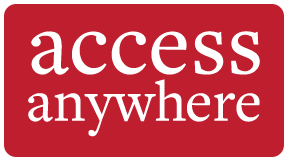Why use a database?
Many researchers rely heavily on Google Scholar to find articles. They will then search for the references found in those articles, and the "cited by" links, to expand their search. Sometimes this works really well, other times, less so. (The "less so" is what keeps librarians nice and busy!)
Google and Google Scholar are powered by proprietary algorithms. Because the systems are proprietary, it's difficult to know if we are getting a complete picture of what has been published on a given topic.
Library databases match your keywords to words in the title, subject headings, and abstracts (summaries) of the articles in the journals indexed by the database. Some databases also look for your keywords in the full text of the article. You will find things you didn't find in Google Scholar, and sometimes you will find things in Google Scholar that you didn't find in a database.
The takeaway? Don't limit yourself to one tool!
Crafting the keyword search
Search tips:
- Start broad, connecting just a few keywords or phrases with AND, e.g. africa AND carbon
- Place quotation marks around phrases, e.g. "clean energy"
- If you receive a large number of results, add keywords to narrow your search, e.g. "clean energy" and India
- Broaden your search with alternative terms, in parentheses using OR (green OR sustainable)
- Use an asterisk on word stems to find variant ending
Essentials
-
Historical AbstractsArticles, books, dissertations on the history of the world since 1450. Excludes the United States and North America.
-
Bibliography of British and Irish History(formerly Royal Historical Society bibliography online). Database contains 300,000 records on British and Irish history, including relations with the empire and Commonwealth. Bibliography includes books, articles in journals and collective volumes, and review articles, incorporating the content of the print annual bibliographies for 1993-2000; with updates to follow. The on-line edition also includes some earlier publications, with near-comprehensive coverage of works published since 1900 and select earlier works.
-
Africa WideAfrica-wide NiPAD is an index covering material on Africa from the 19th century to the present.
-
EBSCO Academic Search PremierMultidisciplinary and multi-genre--scholarly journals, scholarly journals, magazines, reports, newspapers. Lots of full text.
-
JSTOR: The Scholarly Journal ArchiveExcludes 3-5 years most recent articles. ALL JSTOR journals included in America History and Life/Historical Abstracts.
Articles + Full Text

The Articles & Full Text feature on the main Library web page allows you to perform simple searches across multiple databases. Because the various databases are structured differently, search results may vary widely. For more precise searching, it's best to search the databases individually. Choosing Databases will display a listing by subject area.
How to access an article
Not all articles are available full text! If an article isn't available full text through a database...
- Use Get it! Cornell.
- If there is no "Get it! Cornell" link/button, search on the title of the article or book in the search box on the library homepage.
- If you cannot locate the article, Ask a Librarian!
Access Anywhere for remote access
Access Anywhere is a bookmarklet that lets you quickly authenticate as a CU person, when you're off-campus. This allows you to access databases.
Google Scholar - Get it Cornell
-
Google ScholarGoogle Scholar does this as well, but appears to include all citing sources, whether or not they have been published through the peer-review process.
